SUMMARY
This is AI generated summarization, which may have errors. For context, always refer to the full article.
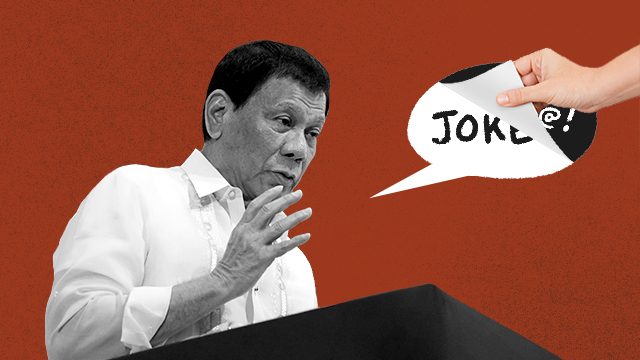
MANILA, Philippines – It’s a little tricky to decide when President Rodrigo Duterte is joking because he has implemented, or tried to implement, some policy pronouncements that were, at best, remarkable, at worst, downright crazy.
In 2018, there was no lack of astounding declarations courtesy of a president with an “announce now, adjust later” attitude.
But new presidential spokesman Salvador Panelo sought to help the public decipher Duterte’s alarming utterances. According to him, if what Duterte is saying does not make sense, it’s probably just a joke.
Yet Duterte has announced policies that at first sounded so over-the-top that many had to think twice if he was serious. In some cases, these declarations ended up becoming real policies, implemented by government agencies. In other instances, Duterte advisers have had to tell the President that what he wanted couldn’t be done and that adjustments had to be made.
Let’s recall the 2018 moments when Duterte made us ask: is this the real world?
1. Boracay shutdown
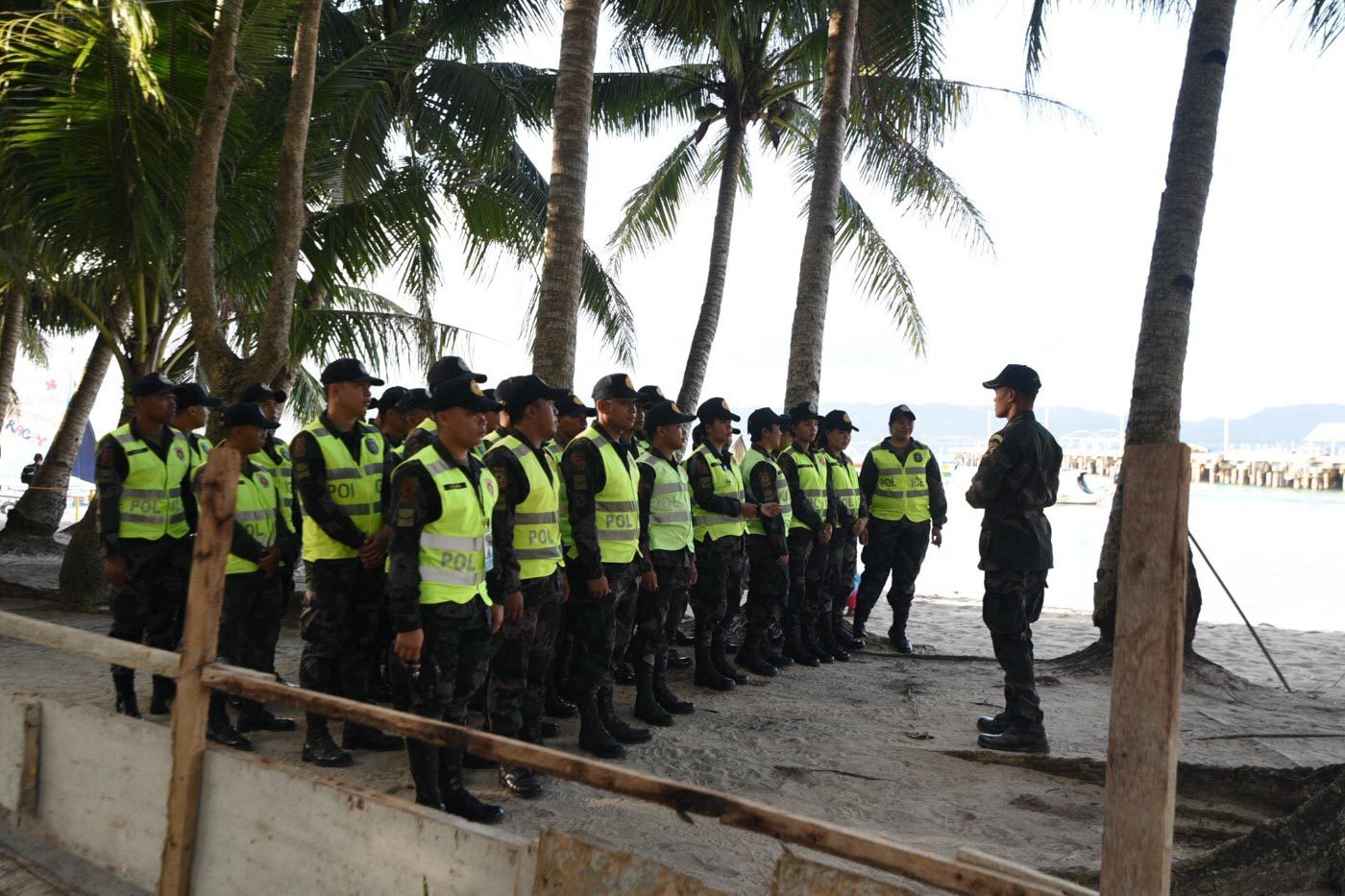
“I will close Boracay. Boracay is a cesspool,” said Duterte on February 9 in a Davao City forum. At the time, it was hard to fathom if Duterte was merely exaggerating as the only concrete instruction he had given to the environment department was to address the party island’s environmental woes.
But two months later, Duterte, in a Cabinet meeting, issued an order to close the island for 6 months. In those months, the public had to adjust to regulated entry into the island, scenes of the military practicing terror attack scenarios on its white-sand beach, and the closure of hundreds of business establishments.
To many, the bold move was a demonstration of Duterte’s political will. Others questioned Duterte’s real motives as reports of Chinese business interests in the island surfaced.
Given what happened to Boracay, what do we make of another statement Duterte has made – that Metro Manila should be “closed” in 10 years?
(Check out Rappler’s special coverage: Boracay: Paradise reborn?)
2. Proclamation nullifying Trillanes’ amnesty
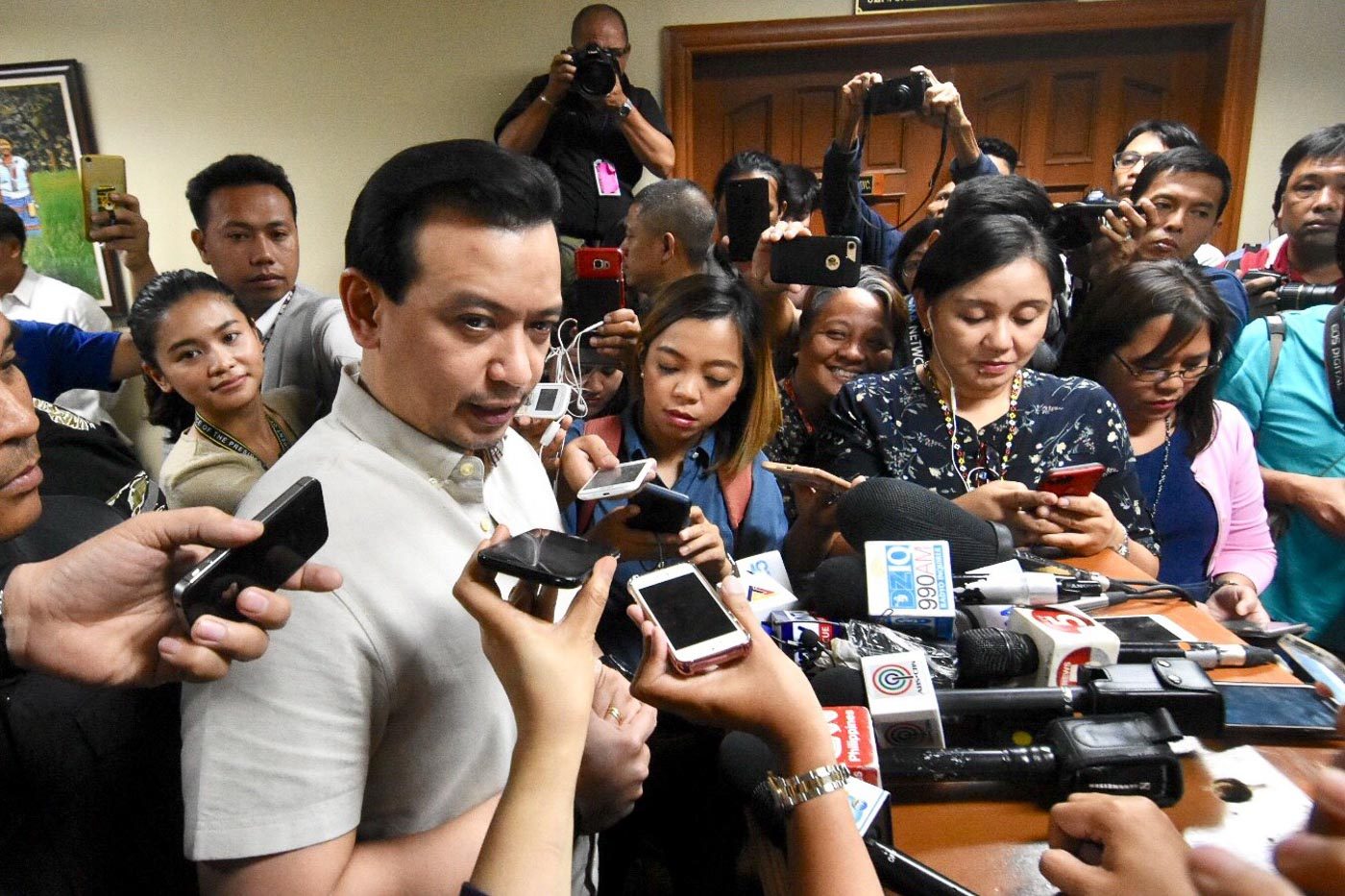
Duterte unleashed a firestorm when his Proclamation Number 572 was publicized, showing he was determined to put Senator Antonio Trillanes IV behind bars supposedly for never having properly obtained amnesty for rebellion charges.
The move struck many lawyers and lawmakers as illogical, especially after defense department officials admitted Trillanes went through the process of getting amnesty and after a Makati court judge said it did not make sense to change a court decision made 7 years ago.
Duterte likely did not expect such fierce backlash. In the end, the Makati court’s decision is stopping the government from implementing the presidential order. (READ: INSIDE STORY: How Duterte handled Trillanes fiasco from Israel, Jordan)
3. Military ‘takeover’ of customs
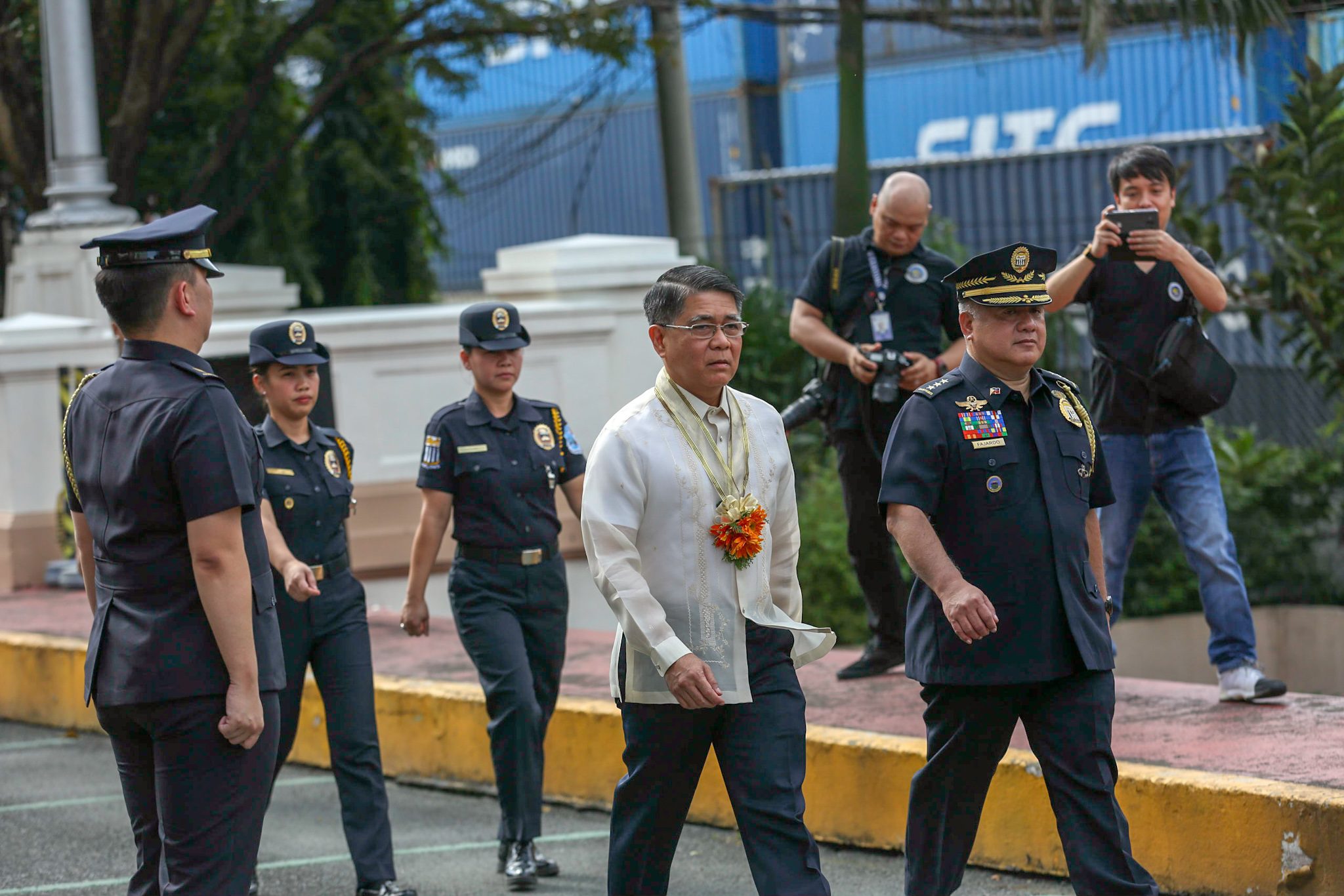
Duterte shook up an otherwise peaceful October Sunday when he announced he would order a military “takeover” of the Bureau of Customs (BOC) after back-to-back shabu smuggling controversies.
But lawyers pointed out that this could be a violation of the 1987 Constitution, which bars soldiers from being given civilian positions “in any capacity.” Duterte then clarified his order, saying he only wanted soldiers to supervise BOC personnel.
4. State-backed ‘Duterte Death Squad’
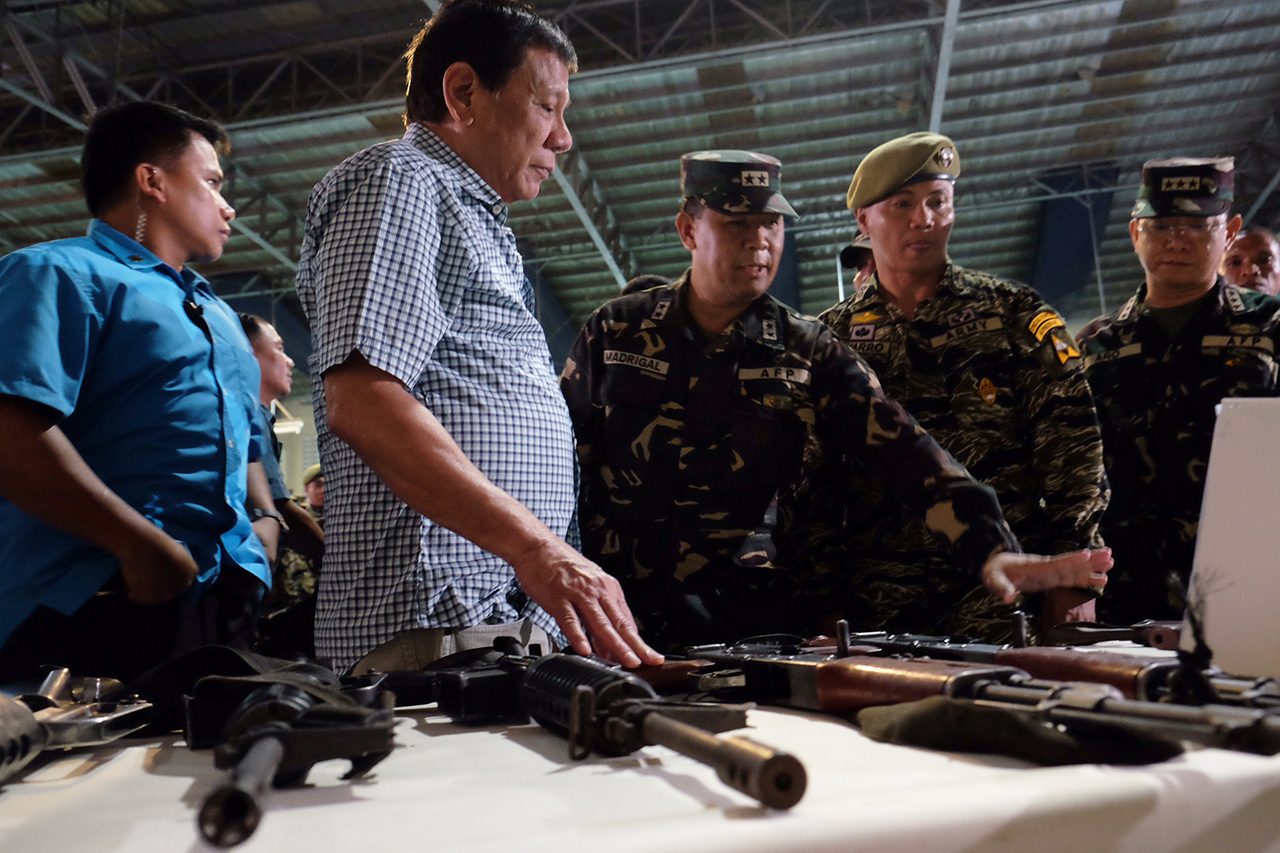
“I will create my own sparrow, Duterte Death Squad against the sparrow,” announced Duterte on November 27.
For human rights activists, nightmare had become a reality. Duterte, who denied many times that government was behind drug-related hit squads, was now saying the state would operate its own hit squads, only against communist rebels.
The Commission on Human Rights had to point out that, under international humanitarian law, no government is supposed to fund its own death squads. Eventually, Defense Secretary Delfin Lorenzana said no government-backed entity would be named “Davao Death Squad” and that the President’s order would be operationalized by “Anti-Sparrow Units” attached to Army divisions.
5. Withdrawal from the the ICC
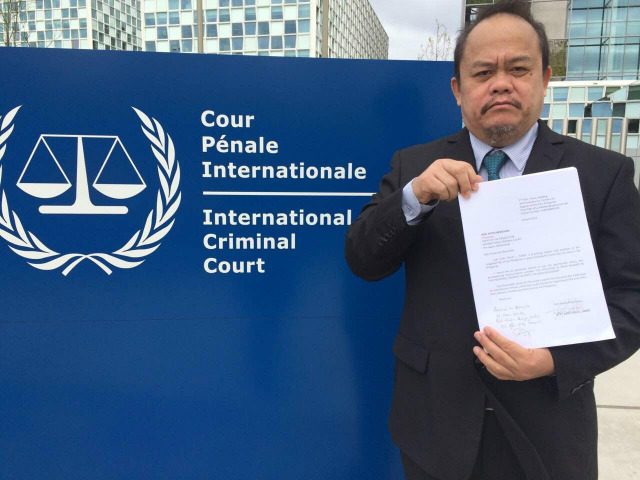
Back in August 2016, Duterte said his threat to make the Philippines leave the United Nations was just a joke. Three months later, he threatened Philippine withdrawal from the UN’s International Criminal Court (ICC). Fast forward to 2018 and Duterte has made good on the second threat.
Lawyers raised their eyebrows at Duterte’s arguments for the withdrawal, which include the non-publication of the Rome Statute, the ICC’s founding treaty, in the Philippines’ Official Gazette. He also argued that deaths arising from his campaign against illegal drugs can’t be considered crimes against humanity, thus the ICC does not have jurisdiction over him.
Duterte’s unilateral pullout from the international tribunal is being challenged before the Supreme Court.
He withdrew from the ICC when it began its “preliminary examination” of the complaint over his bloody campaign against illegal drugs.
6. ‘Abolishing’ the NFA Council
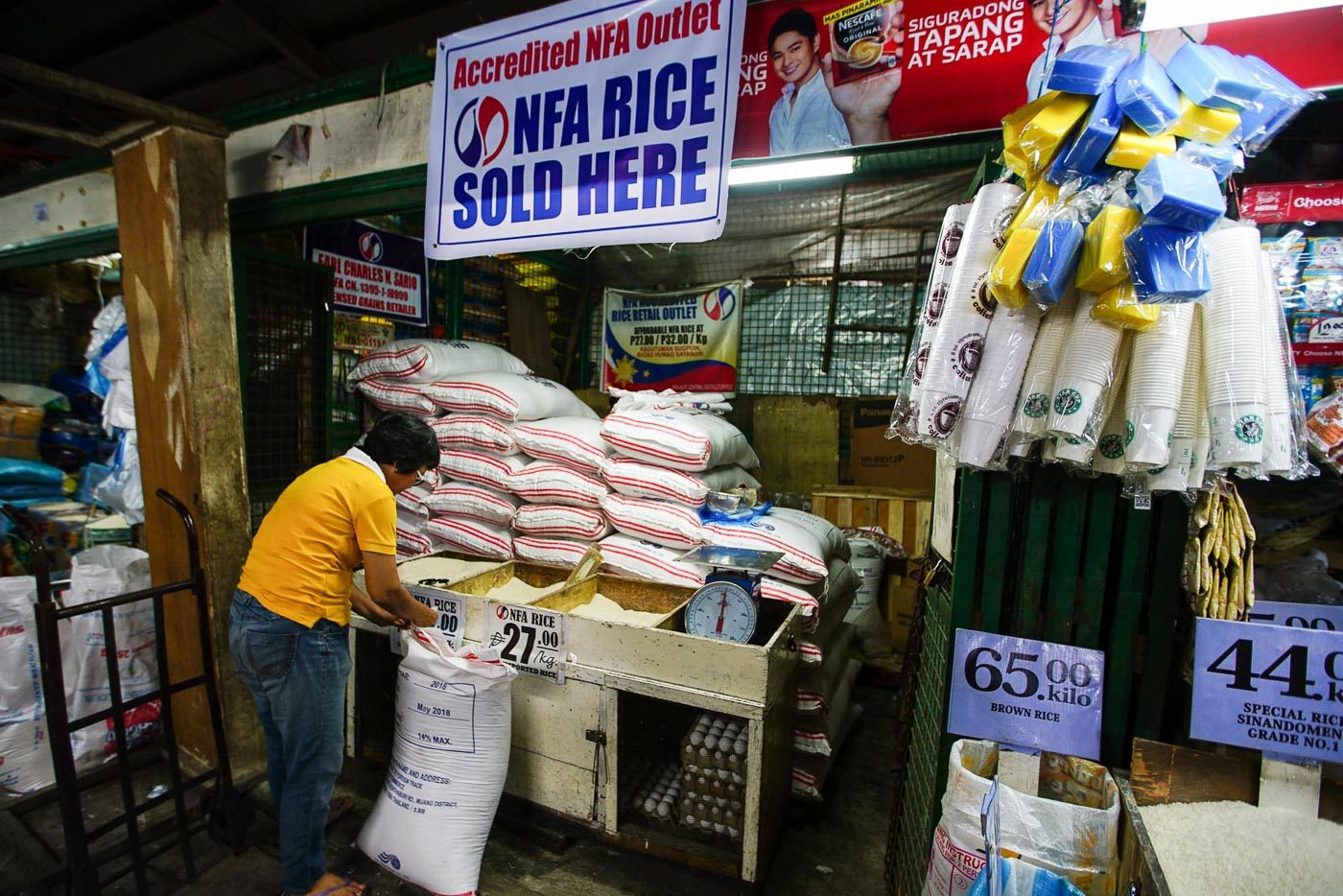
With his administration pummelled with criticism for its handling of the rice crisis, Duterte announced in a dinner with rice traders that he wanted to “abolish” the National Food Authority Council (NFAC).
But abolishing the NFAC, the government’s policy-making body when it comes to rice and food security, requires repealing the presidential decree that created it.
Right after his announcement, Executive Secretary Salvador Medialdea and Agriculture Secretary Manny Piñol convinced Duterte to change his order.
“It’s true the President mentioned that (NFA Council abolition), but, after, he was approached by Secretary [Manny] Piñol and Executive Secretary Medialdea, who explained to me that, that it was agreed, he kind of shifted gears and said that the NFA must be put under the Office of the President,” said then-presidential spokesman Harry Roque.
The NFAC was not abolished, but Duterte took away its chairmanship from former Cabinet Secretary Leoncio Evasco Jr and transferred it to Piñol.
7. Reviving barter trade in Mindanao
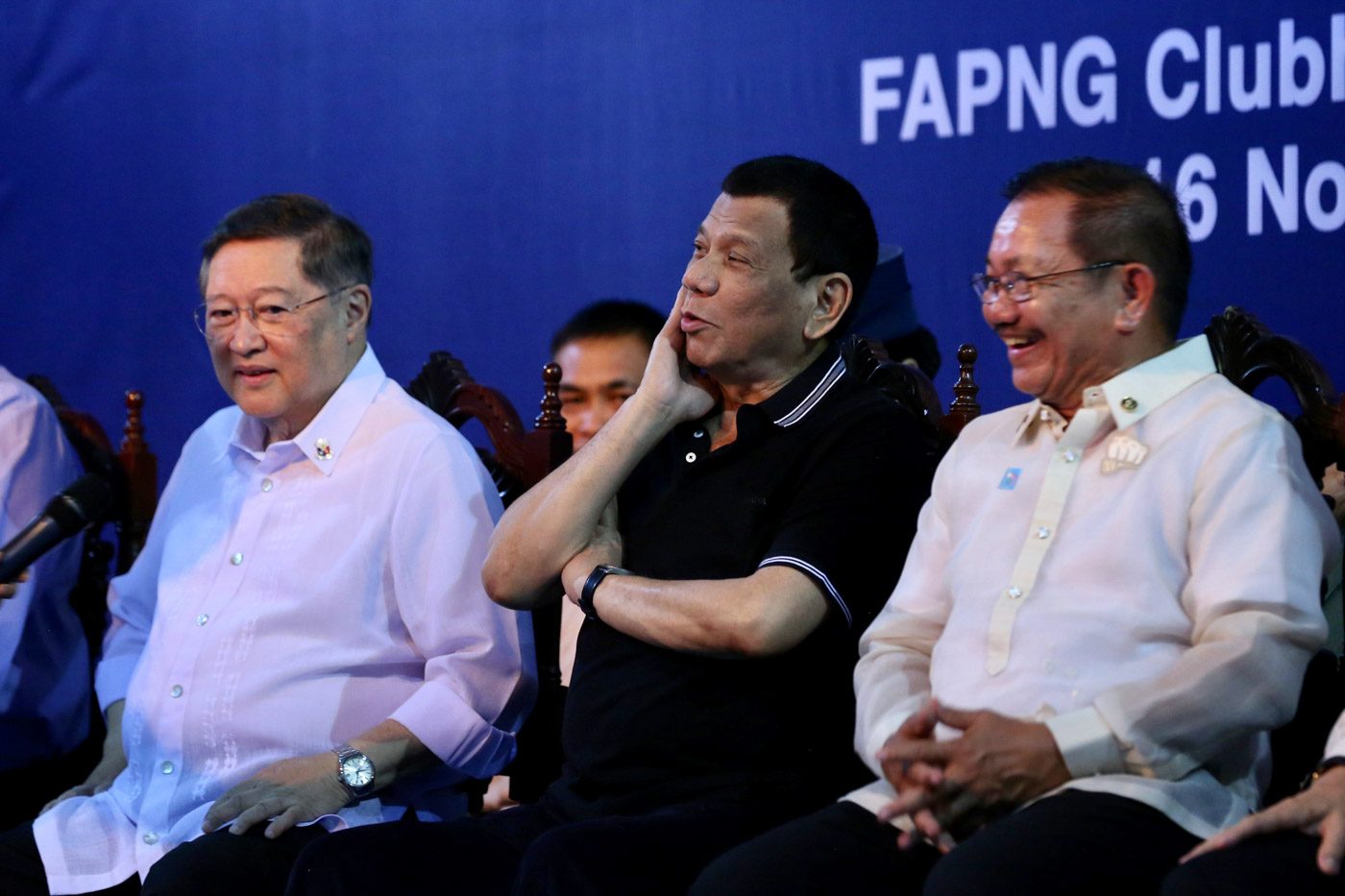
At a time of soaring inflation, particularly of rice prices, Duterte floated a solution: revive the ancient practice of barter trade. A mode of trade that does not make use of money, barter trade would be relegated by many to the history books. But not Duterte.
A month after voicing his idea, he signed an executive order to do just that.
His Executive Order Number 64 orders the establishment of 3 “barter ports” in Sulu and Tawi-Tawi. He also created a Mindanao Barter Council.
8. ‘Positive/negative’ cancer test results, marijuana use
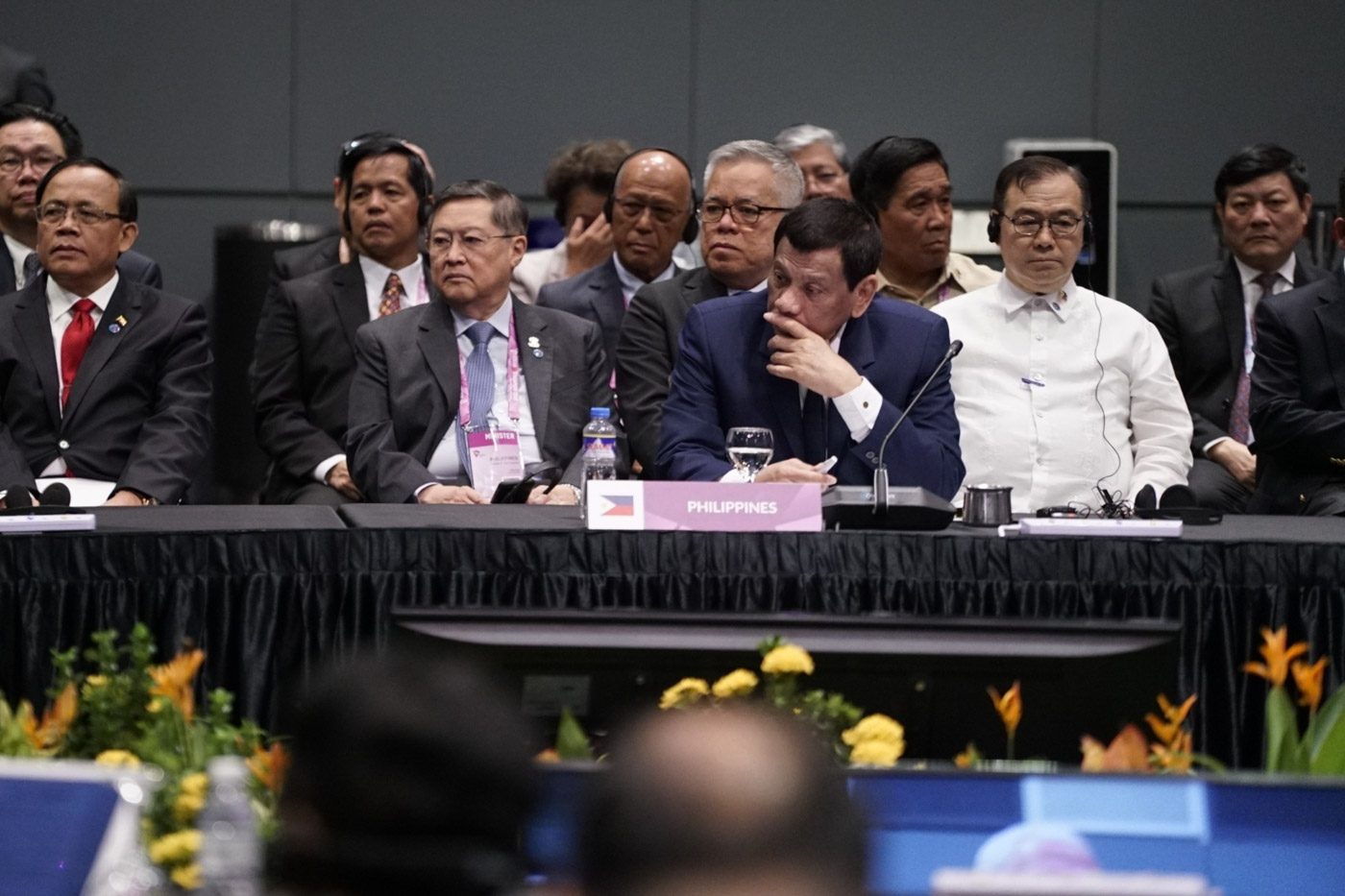
This last item may not be about policy pronouncements, but these two presidential statements had Filipinos, and even the international community, do a doubletake.
First, after he revealed he had been undergoing medical tests to check for cancer, Duterte told his Cabinet members that the results came back “negative.” But he later on joked in public that he took another test which came out positive, following it up with what a Cabinet member described as a “riddle.” The riddle, in which Duterte compared himself to a magnet with positive and negative sides, confused people even more about the real state of his health.
Later on in the year, Duterte said he uses marijuana, illegal in the Philippines, to stay awake. This comes after he had admitted in previous years to using fentanyl patches to ease pains. With Duterte leading a controversial crackdown on illegal drugs like marijuana, many thought the remark jarring. Of course, Malacañang quickly clarified that the President was only joking. – Rappler.com
Add a comment
How does this make you feel?
There are no comments yet. Add your comment to start the conversation.